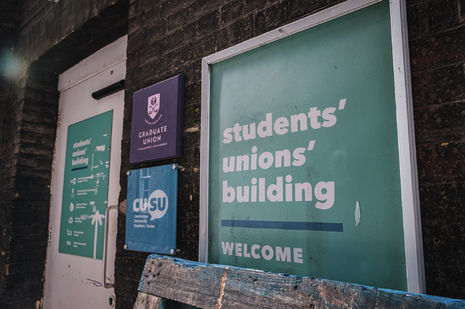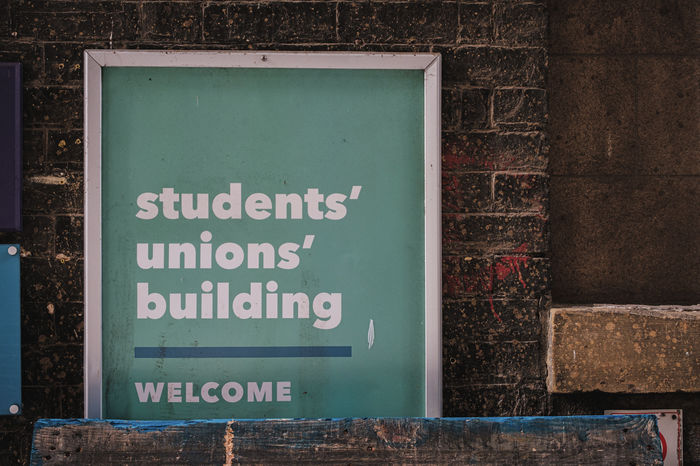SU meetings are just too boring
Free pizza doesn’t make up for hours of unnecessary bureaucracy, says Will McLaughlin

It’s 6.30 pm, and I’m sitting in the abandoned exam hall turned SU lair that is the Cormack Room on the second floor of the SU building. The first Student Council meeting of Lent 2024 is about to begin. I’m feeling good, not only because I’m stuffing my face with complimentary Domino’s pizza, but also because there are finally enough eligible representatives present to actually vote. The reason I’d chosen to make a pilgrimage to this bastion of university politics was that the last two meetings (Michaelmas 3 and Michaelmas 4) had failed to reach quorum and therefore couldn’t pass a motion. The lack of turnout, as well as the reported free food, just required investigation. By approximately 8.30 pm, however, I had discovered the problem. Despite the enthusiasm the SU reps displayed, the good humour with which they delivered their updates, and the well-informed and plentiful debate on pressing student issues, one unfortunate fact remained: the meetings are just really (really) boring.
“The last two meetings ... had failed to meet quorum”
The meeting began with the expected cascade of bureaucracy: the reps ask for objections to the agenda, a hand is raised to quibble with some small detail, the microphone is passed and quibble conferred, said quibble is accepted by the chair and the agenda is updated. Then came the request for the approval of the minutes of the previous meeting, a different, equally annoying hand is raised to quibble, the microphone is passed to them, they quibble, and on it goes.
Eventually, this tedious quibble-based routine comes to an end and the updates from the sabbatical officers begin. The “sabbs” were genuinely lively and engaging. Fergus (the SU president) was a great speaker, dropping in a few jokes, getting the crowd involved, and keeping his tone lively, but his enthusiasm did little to mask the unfortunate reality that the material is painfully dull. The process of making change in Cambridge will largely be one of compiling reports, presenting them to University officials in meetings, and then writing up the results of those meetings. Important? Yes. But thrilling for the viewing public? Not so much.
“The material is painfully dull”
After these reports were over, however, debates began and the meeting was positively transformed. No longer was the audience a passive observer, and members of the JCRs spoke their minds and weighed in on the motions that the SU proposed. In this particular meeting, much of the talk revolved around a proposal to end the ban on part-time jobs for students, and one after the other, students stood up and weighed in with differing points of view, potential abuses of the policy, and effects on students in different situations. It feels almost strange saying this about a student-politics meeting, but it was a joy to behold. Not only was every speaker well-informed, but they were passionate, articulate and respectful. I felt like I was watching a game of tennis: not only was my head changing direction towards each speaker, but also my mind: as each brought new information and perspectives, they pulled me successively back and forth to their point of view.
Once these debates were over and the voting began to take place, I was all the more frustrated by the lack of turnout in previous meetings. SU officers, as well as JCR reps, put in so much time and work into furthering student needs, and genuinely care about the welfare of those they stand for. But because of the low turnouts, motions have not even been voted on in months. So, is it the fault of students for not turning up? Of course not. As a lowly humanities student, I happen to do a degree where I can go to a two-hour SU meeting for a laugh and carry on like nothing happened. I have it on good authority, though, that time is incredibly valuable for Cambridge students when you have labs to attend, problem sheets to fill in, or Mechano to construct (I assume that’s what engineers do). When every spare moment in Cambridge counts, dedicating 120 minutes of your evening to suffering through officer updates must be an even more painful prospect.
“Meetings should be for debate around motions and voting on motions”
My fix for the SU meetings? A very simple rule. If the information can be relayed in an email, don’t say it in the meeting. We’re looking to trim about an hour from the meeting to keep turn-out high, so this would mean some pretty radical cuts. The agenda already keeps students up to date with the SU officers, so I have no clue why they waste our time giving meeting attendees the second run-down. If people have problems with the agenda or minutes, I see no problem with quibbling electronically beforehand (so I don’t have to listen).
Ultimately, the unique power of the SU meetings is that it facilitates people going back and forth, a really effective form of discussion because of just how enthusiastic and knowledgeable our students and SU staff are. But with attention spans dwindling, and the lack of time in the Cambridge-student schedule, we need to aim lower with the time frame and focus only on that. TikToks are out of reach I understand, but a feature-film duration is surely beyond the pale. If you want to attract students consistently, keep it simple: meetings should be for debate around motions and voting on motions. Oh, and keep it up with the pizza.
 News / SU reluctantly registers controversial women’s soc18 December 2025
News / SU reluctantly registers controversial women’s soc18 December 2025 News / CUP announces funding scheme for under-represented academics19 December 2025
News / CUP announces funding scheme for under-represented academics19 December 2025 Features / Should I stay or should I go? Cambridge students and alumni reflect on how their memories stay with them15 December 2025
Features / Should I stay or should I go? Cambridge students and alumni reflect on how their memories stay with them15 December 2025 Fashion / The art of the formal outfit 18 December 2025
Fashion / The art of the formal outfit 18 December 2025 News / Dons warn PM about Vet School closure16 December 2025
News / Dons warn PM about Vet School closure16 December 2025










